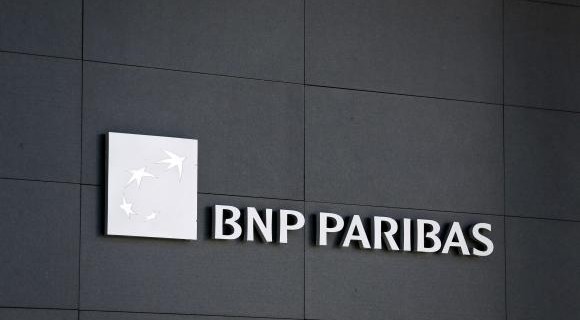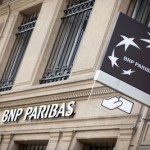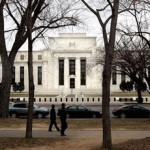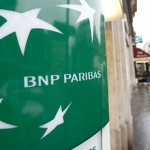A record $9 billion penalty levied against BNP Paribas SA

A record $9 billion penalty levied against BNP Paribas SA for violating U.S. economic sanctions
Terrorism Victims Seek Part of BNP Penalty
Large contingency lost family or were injured in 1998 embassy bombings
The record penalty is morphing into a fight over whether terrorism victims should get any of the money.
BNP pleaded guilty in June 2014 to illegally funneling billions of dollars through the U.S. financial system for clients in Sudan, Iran and Cuba—countries designated as state sponsors of terror and subject to U.S. embargoes at the time of the misconduct.
Now, a group of terrorism victims is asking the U.S. Justice Department to compensate them with funds from the BNP settlement, attempting to draw a connection between the French bank’s misconduct and terrorist acts overseas.
A large contingency of those seeking restitution are victims who lost family or were injured in the U.S. Embassy bombings carried out by al Qaeda in Kenya and Tanzania in 1998. They have argued to prosecutors and in public statements they should get some of the BNP money after a federal judge ruled that the Sudanese regime funded the attacks.
Other groups expected to request a share of the BNP money include Americans held hostage in Iran in 1979 and Cubans whose property was taken away by that government, people familiar with the matter said.
The situation has presented U.S. authorities with novel legal questions about how—and whether—to distribute the funds. Among the dilemmas: Is there a way to identify groups of individuals harmed by BNP’s misconduct and give them money?
“You are writing on a relatively blank slate when it comes to the rules and regulations governing compensating victims of terror,” said Kenneth Feinberg, who has administered claims for victims of disasters ranging from the 9/11 attacks to the 2010 BP oil spill in the Gulf of Mexico.
“It’s relatively rare that you even have such funds…there is such little precedent,” he said.
The Justice Department received about $3.8 billion of the total payout with the rest going to other federal, state and local agencies. Because the bank pleaded guilty, the department has more leeway to determine how the BNP funds are used. Previous deals to resolve U.S. sanctions violations by global banks have included deferred or nonprosecution agreements, which don’t offer flexibility on where the money goes if victims are difficult to identify. In those cases, the money goes to the general asset-forfeiture fund and is spent on law-enforcement projects.
Lawyers for terrorism victims seized on BNP after a federal judge last year awarded approximately $8.7 billion to victims of the 1998 embassy bombings. The judge concluded the government of Sudan was responsible, but getting that money was going to be a tough task since Sudan has virtually no assets in the U.S.
In a filing with the Justice Department and Manhattan U.S. attorney’s office last December, the lawyers petitioned for $2.5 billion and argued the bombings could be considered a “related offense” to BNP’s illegal conduct because the bank helped Sudan facilitate billions of dollars in illegal transactions. Last year’s charges against BNP detailed the bank’s efforts to conceal its work on behalf of Sudanese banks, including moving U.S. dollars out of Sudan without reference to the Sudanese firms.
A BNP spokeswoman declined to comment.
The lawyers said BNP’s conspiracy with Sudan shared a common purpose with al Qaeda’s conspiracy that led to the 1998 bombings: to defeat and undermine U.S. sanctions against Sudan. Although al Qaeda had other primary goals, one of the terrorist group’s aims was to undermine U.S. foreign policy, including sanctions against Sudan, the lawyers argued.
At BNP’s sentencing in Manhattan federal court on May 1, Justice Department prosecutors said they would set up a website and conduct a study first, infuriating the victims whose lawyers have argued the study could take years and potentially result in no money distributed.
Steven Perles, one of the lawyers representing the embassy- bombing victims, said the website could “artificially inflate the expectations of thousands of victims around the world,” many of whom will most likely not receive compensation if they have no clear connection to the U.S.
At BNP’s sentencing, federal prosecutor Andrew Goldstein said the government was “exploring ways to use the forfeited funds” and “see if there is an equitable way to distribute funds from this judgment to potential victims of these regimes.”
Experts say this is likely the first time any terrorism victims have undertaken such a large public effort to get compensated from a bank penalty. The fight for the BNP money is being closely watched by other terrorism victims around the world, lawyers say, as the case could set a blueprint for victims in the future to get compensated. Many of these victims have tried for years to get remuneration. Congressional efforts to compensate the terror victims have largely failed, and U.S. officials and outside experts say figuring out who is eligible for the funds is far from clear.
When money is forfeited as part of a criminal conviction, U.S. law allows the attorney general to take action “to protect the rights of innocent persons which is in the interests of justice.” Officials are trying to determine what constitutes the “interests of justice,” and whether it gives them leeway to go outside the 2004-2012 time frame of the BNP misconduct covered by the settlement to compensate victims hurt as far back as the 1970s.
To figure out who might deserve compensation, the Justice Department website asks for information from anyone harmed by the Sudanese, Cuban and Iranian regimes between 2004 through 2012, the years of BNP’s misconduct, and gives potential victims until July 30 to submit their claims.
Another prosecutor, Jennifer Ambuehl, told the court that the government planned to use the information collected to “better understand” who could be awarded money and to set up a system to evaluate potential future claims. She added that there were “practical and policy considerations” that affects whether they can fairly distribute the funds.
Although the website asks for information from individuals harmed within the time frame of BNP’s misconduct, Ms. Ambuehl said the government still wanted information from people with claims outside that time frame.
Source: The Wall Street Journal – Terrorism Victims Seek Part of BNP Penalty




























